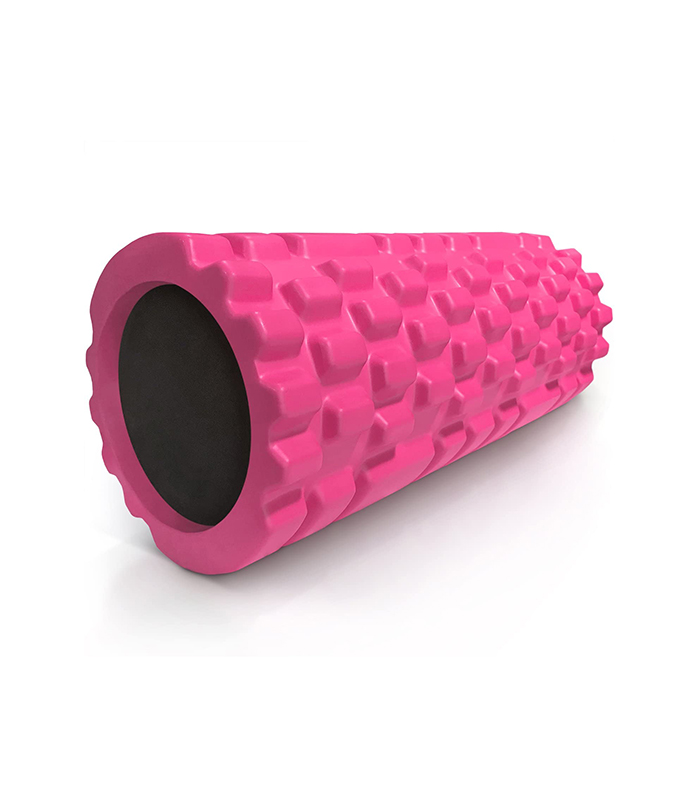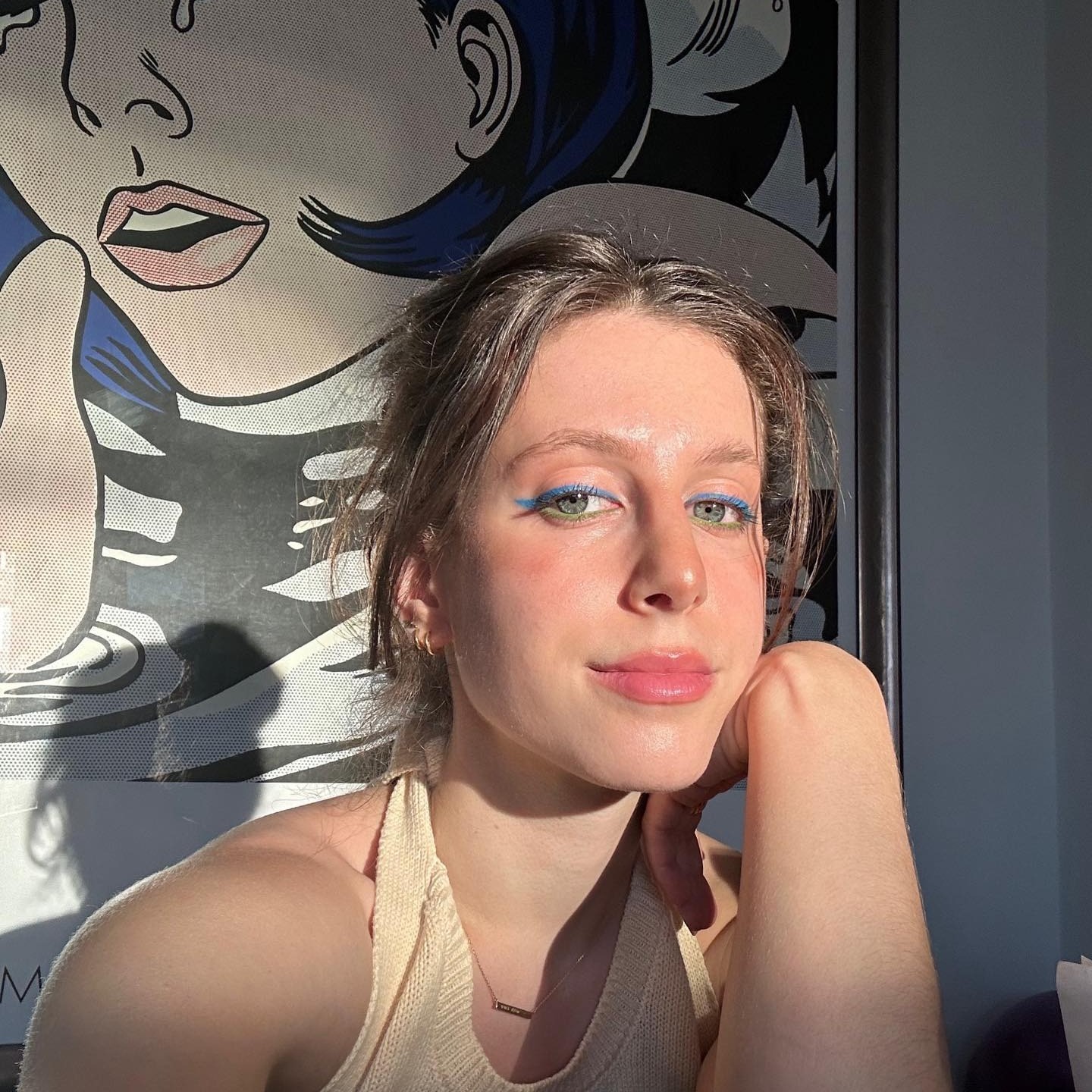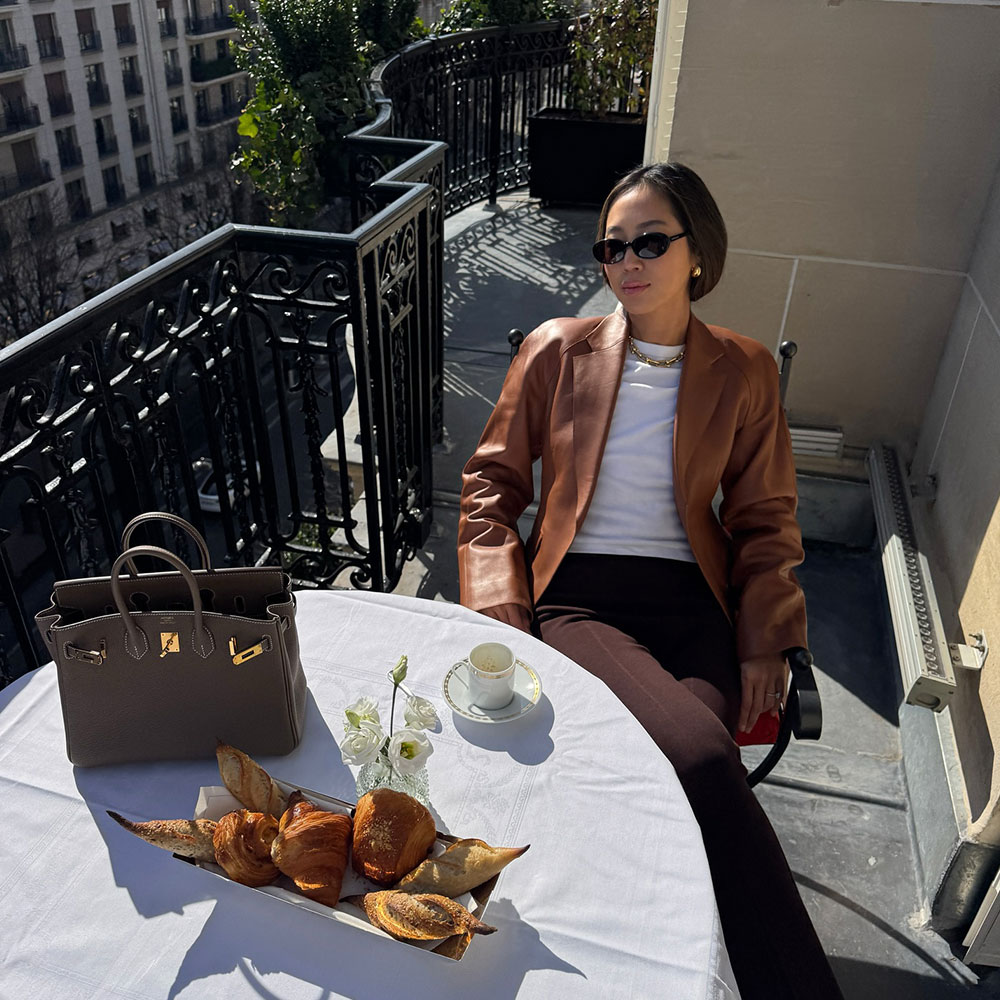This $27 Fitness Buy Changed My Workouts for the Better
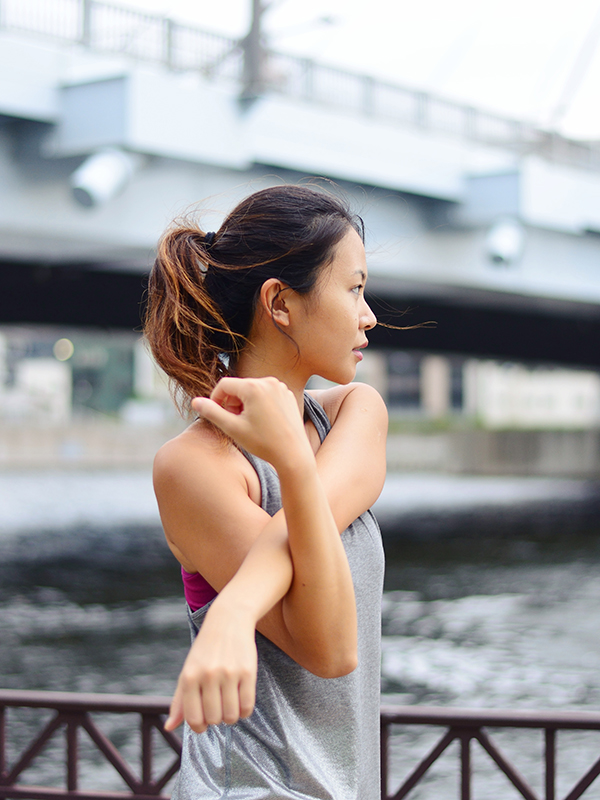
I have to admit, I used to not be very good at my post-workout routine. I normally would finish my workout by leaving the gym or fitness studio immediately, running home to shower, and then either spending my "recovery" period lying down or stuffing my face. I would do the minimal stretching that comes during the wind-down part of a studio class, but that was it.
All of that changed once I started covering health and wellness as managing editor of THE/THIRTY. After talking to so many trainers, kinesiologists, and other experts in the fitness industry, I learned just how important it is to stretch and recover after a workout.
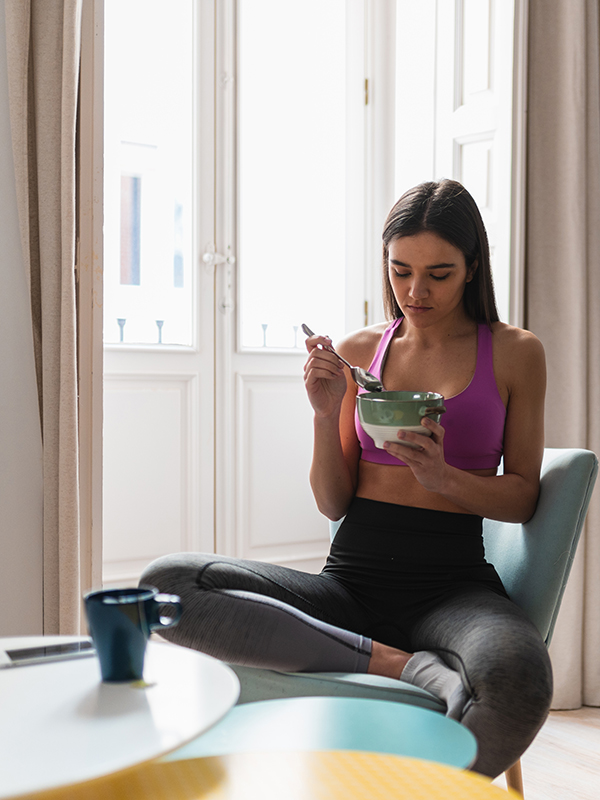
Stretching, in general, can do so much for your body. According to Harvard Health Publishing, "Stretching keeps the muscles flexible, strong, and healthy, and we need that flexibility to maintain a range of motion in the joints. Without it, the muscles shorten and become tight." This can come especially in handy when you've been sitting for a long time. Not only that, but a good stretch can just feel so good.
In addition to helping you move better, stretching can also prevent any injuries or pain. The American Council on Exercise states that post-workout stretches can help relieve any aches or pains you might feel in your muscles. If you've ever been sore for days after an especially grueling gym session, you know that you'll do anything for sweet relief.
Luckily, you can do stretches without any gear at all. But something that makes stretching and the recovery process so much easier (and fun, actually) is my foam roller. It might be one of the most-used items in my apartment at this point. According to ACE, "foam rolling is a self-myofascial release technique (SMR), which is a type of therapy used to eliminate general fascia restrictions." It decreases soreness and increases flexibility. I even like to use mine for any back or shoulder pain I have when I've been sitting at my desk for so long. ACE says that you shouldn't use a foam roller to replace stretching entirely, so I like to use mine after I've done a few basic stretches.
The one I have at home is a $27 buy from Amazon. The compact device has a 3D grid that's supposed to mimic the fingers, palm, and thumbs of a massage therapist's hand. I love the grid because it really helps me get in the "nooks and crannies" (so to speak) of my sore muscles.
And although I'm obsessed with the one I have, there are so many other good options out there on Amazon. Below, I've compiled a list of highly rated ones to try.
1. AmazonBasics High-Density Foam Roller (18 Inches)
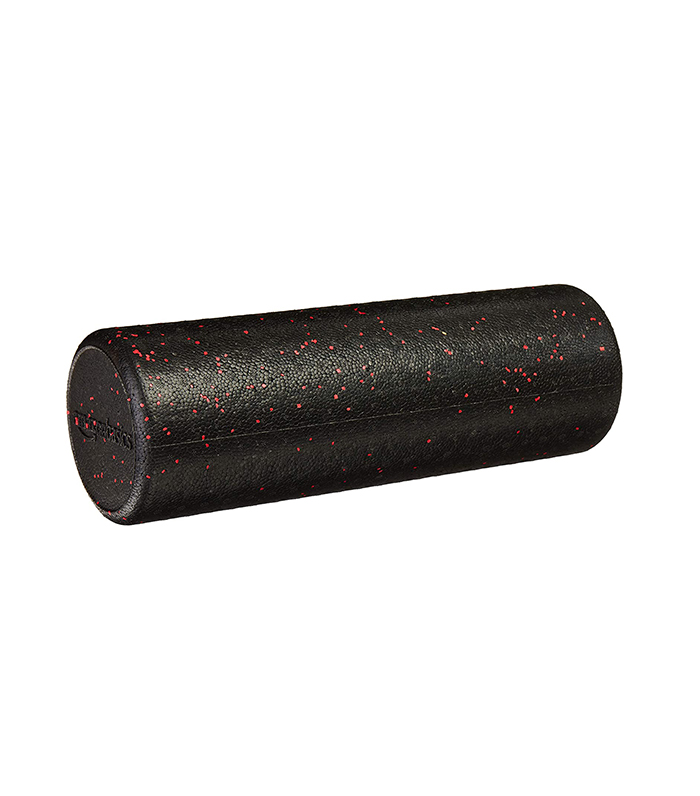
At 18 inches, this is a lightweight and compact option that's easy to bring on-the-go if you need it.
2. TriggerPoint Grid Foam Roller (13 Inches)
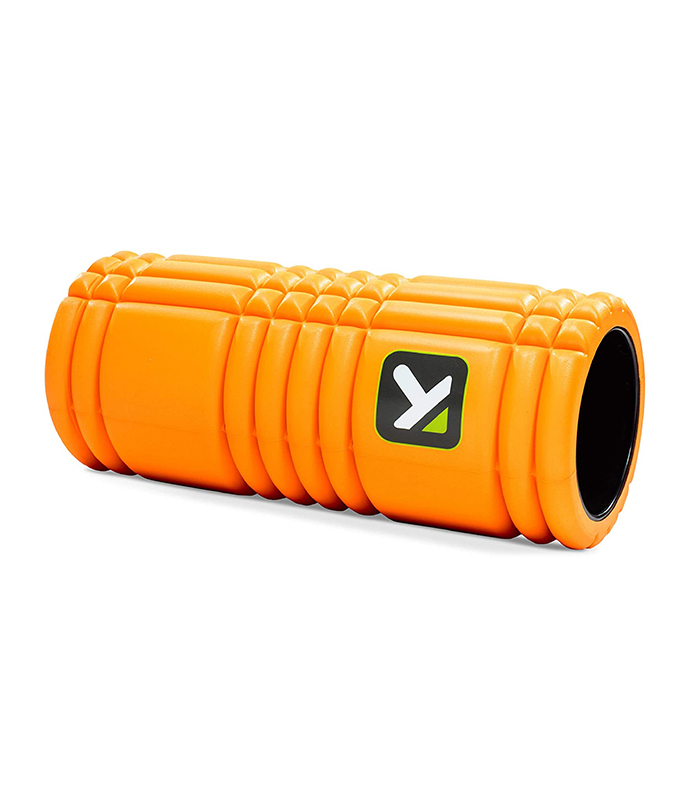
This foam roller has a multidimensional surface to get out those tight knots and soothe muscles. The core is hollow so it's extremely lightweight yet still sturdy.
3. AmazonBasics High-Density Foam Roller (36 Inches)
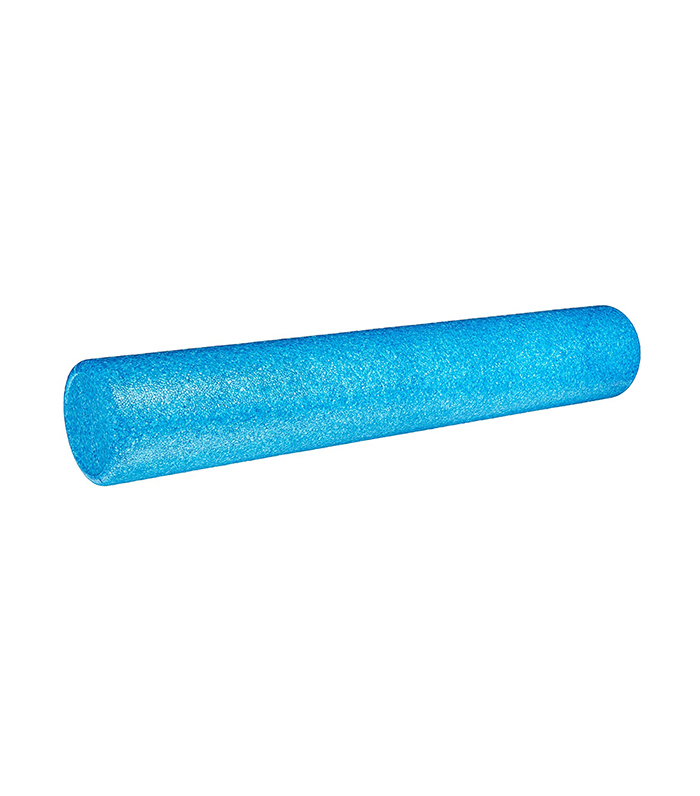
If you want a larger option, this one from AmazonBasics is 36 inches long. Use it on your back, calves, hamstrings, and glutes.
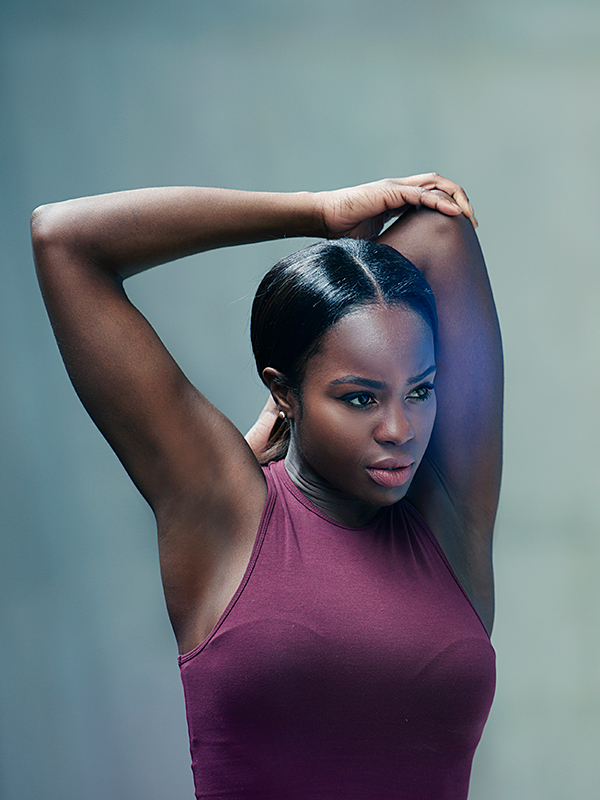
4. LuxFit Foam Roller (18 Inches)
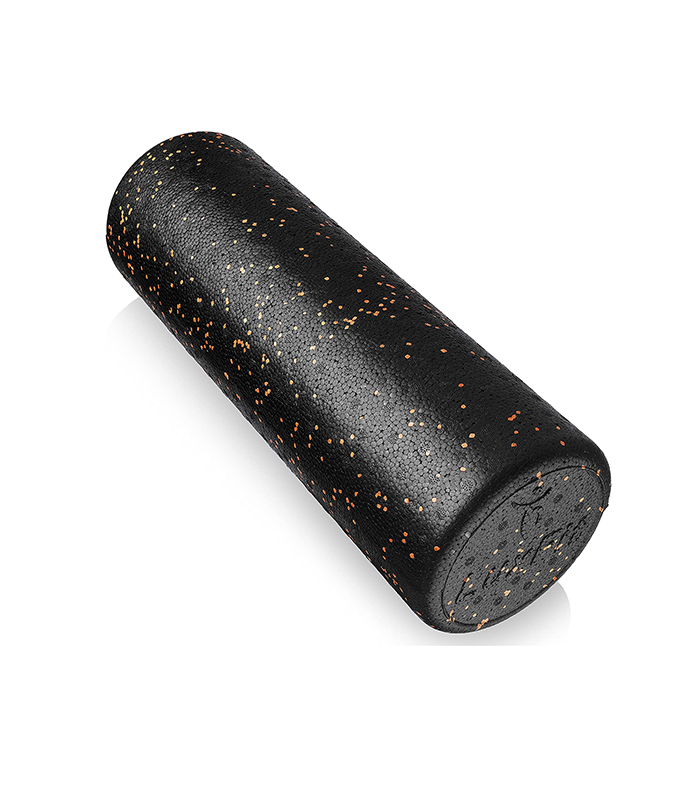
Extra firm and liquid-repelling, this foam roller won't lose its shape after use.
5. TriggerPoint Grid Foam Roller (26 Inches)
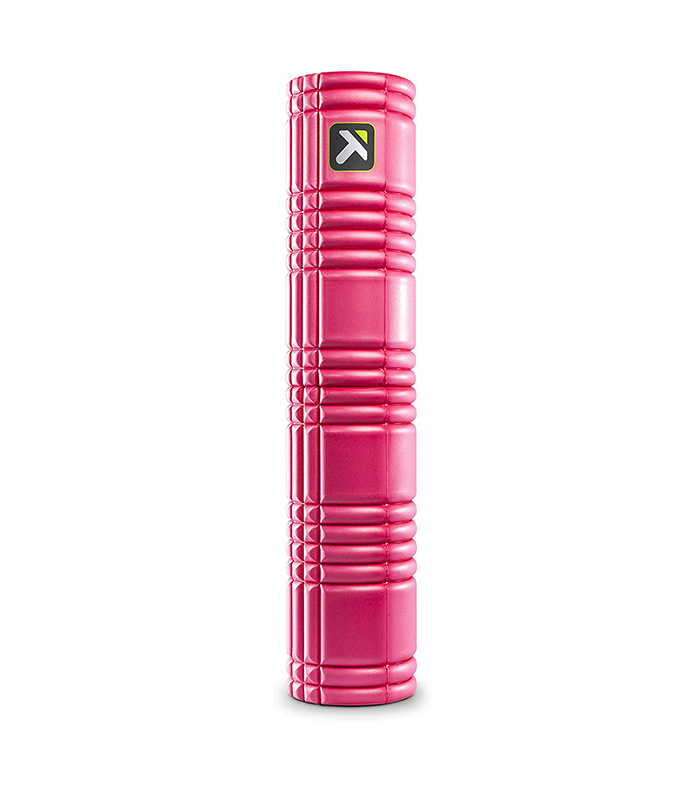
The larger version of the Trigger Point Grid foam roller above, this one is 26 inches long for more coverage.
6. Gaiam Essentials Foam Roller (36 Inches)
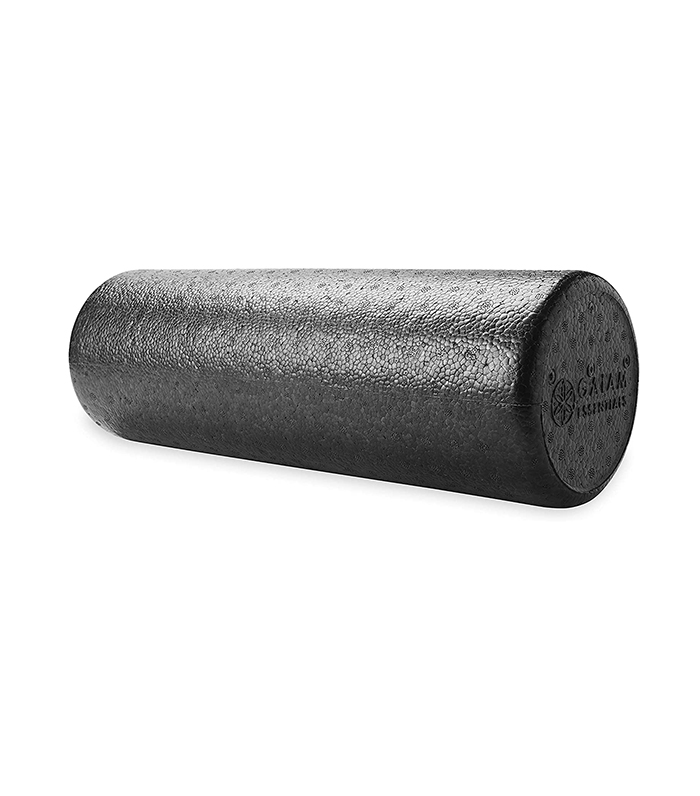
Created by yoga brand Gaiam, this high-quality foam roller helps you relieve tight muscles and back pain. At 36 inches, it's good for total body work.
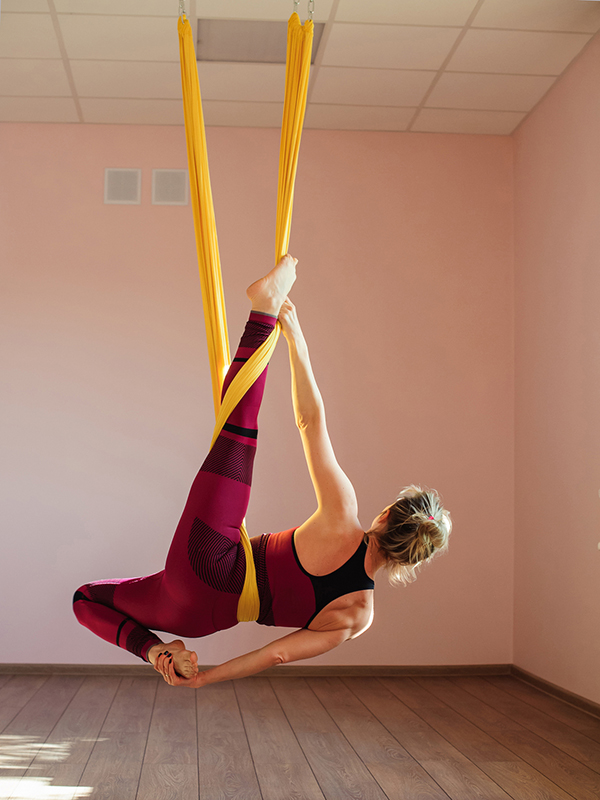
7. RumbleRoller Textured Muscle Foam Roller (22 Inches)
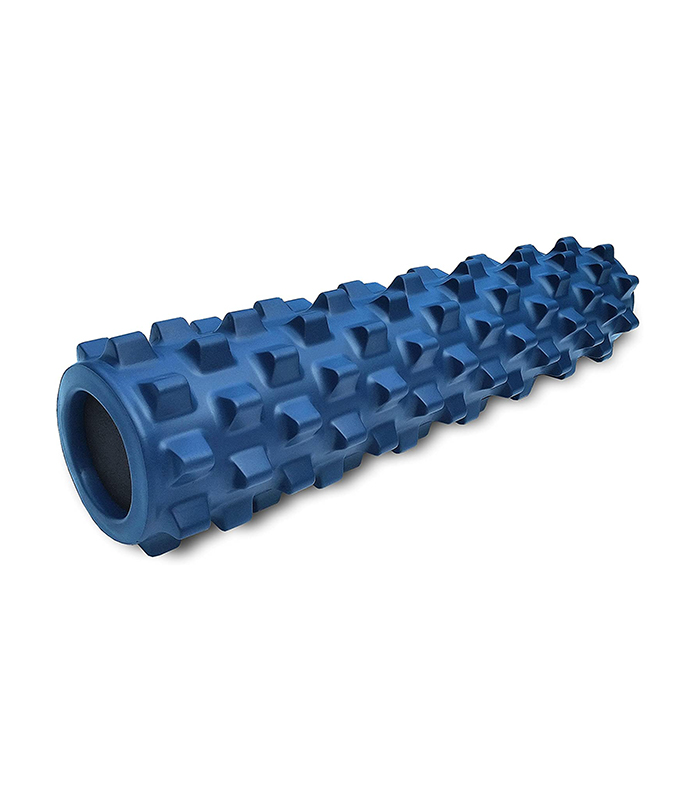
The RumbleRoller is also textured to mimic the thumbs of a massage therapy to knead and stretch gently.
8. Yes4All Exercise Foam Roller
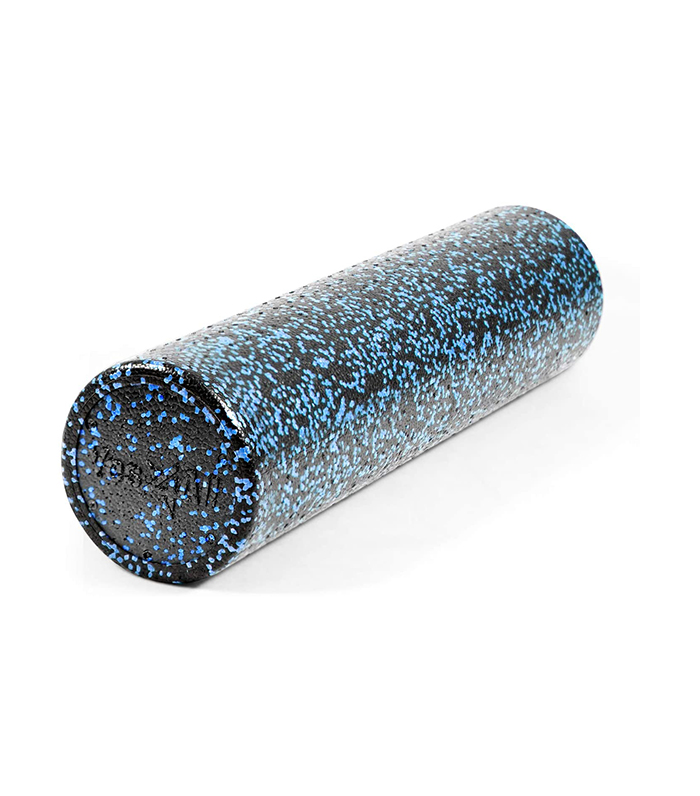
You can easily take this 12-inch foam roller with you to the gym or a studio class to make sure you get your post-workout recovery in. It is made of high-density foam.
9. Rolling With It Therapeutic Grade Premium EVA Foam Roller (18 Inches)
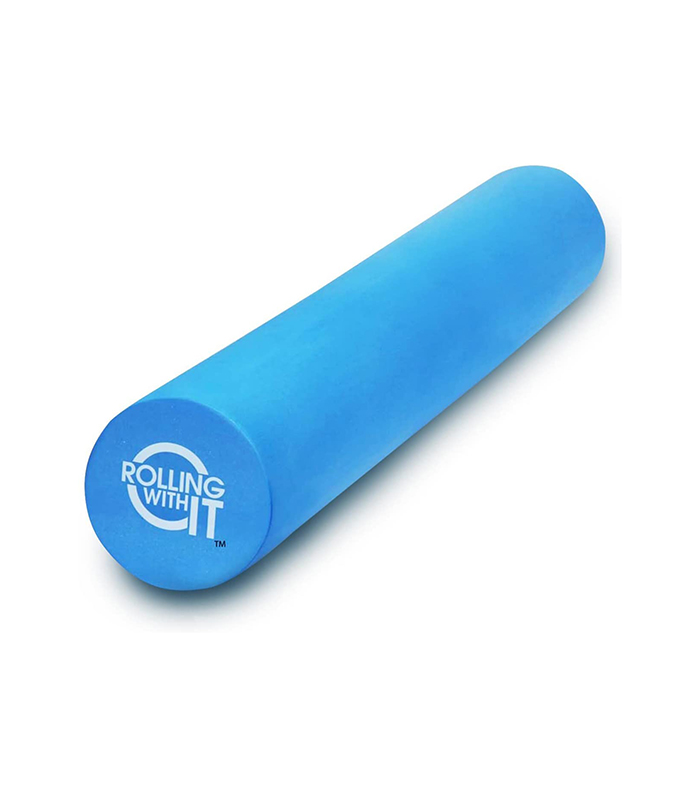
The 18-inch roller is ideal for your hamstring, IT band, and calves. It's also eco-friendly and recyclable.
Other Recovery Tools to Try
Want to up your recovery game even more? These are some other options to help you stretch and relieve any aches and pains.
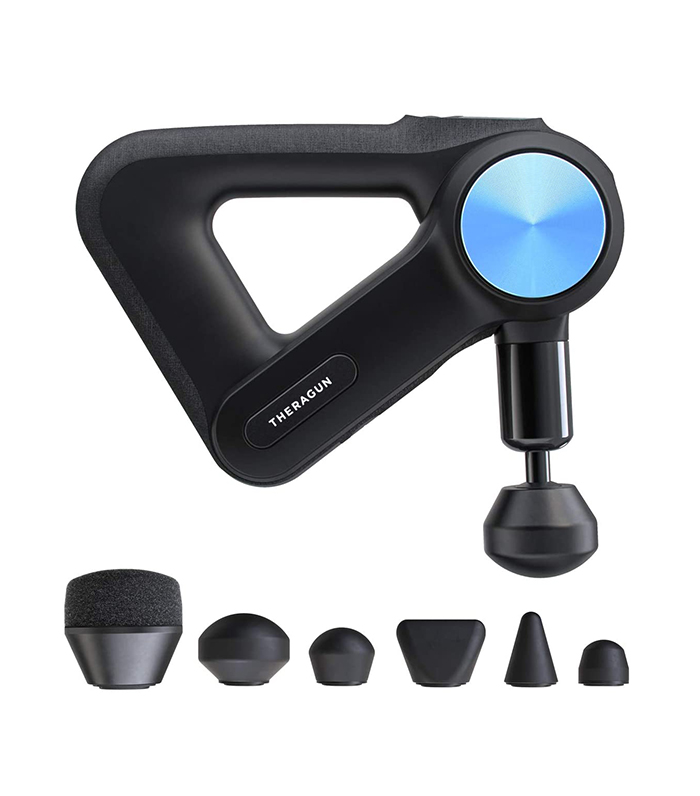
Theragun devices are splurges, but they definitely get the job done. Apply the tool to areas that are sore or tight for a deep muscle treatment. As someone who always has tight muscles (particularly in my shoulders and upper back), owning one of these devices has come in so handy and has made a big difference.
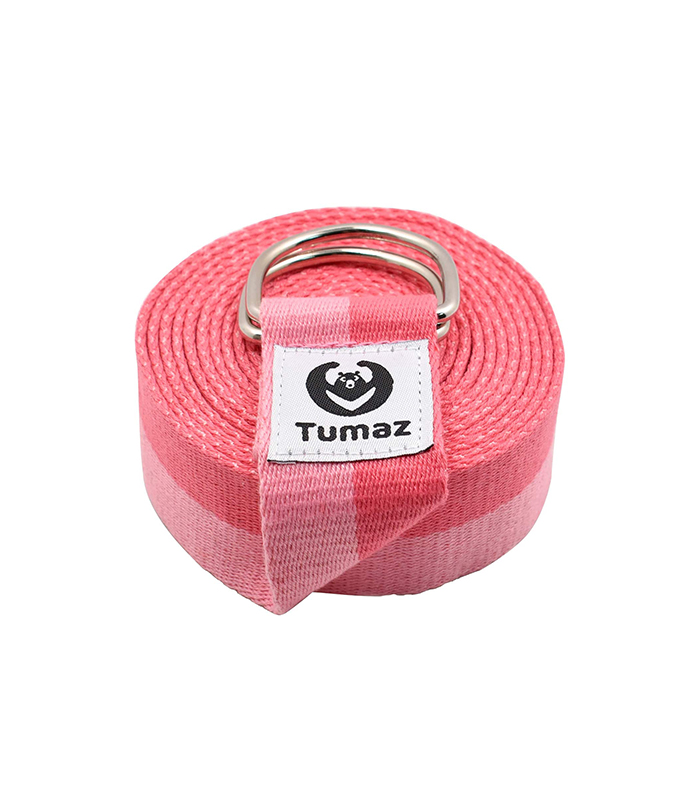
This is another piece of gear that I have at home. I find myself regularly using this for everyday stretching, and not just for after-workout recovery. It comes in three sizes: 6, 8, and 10 feet.
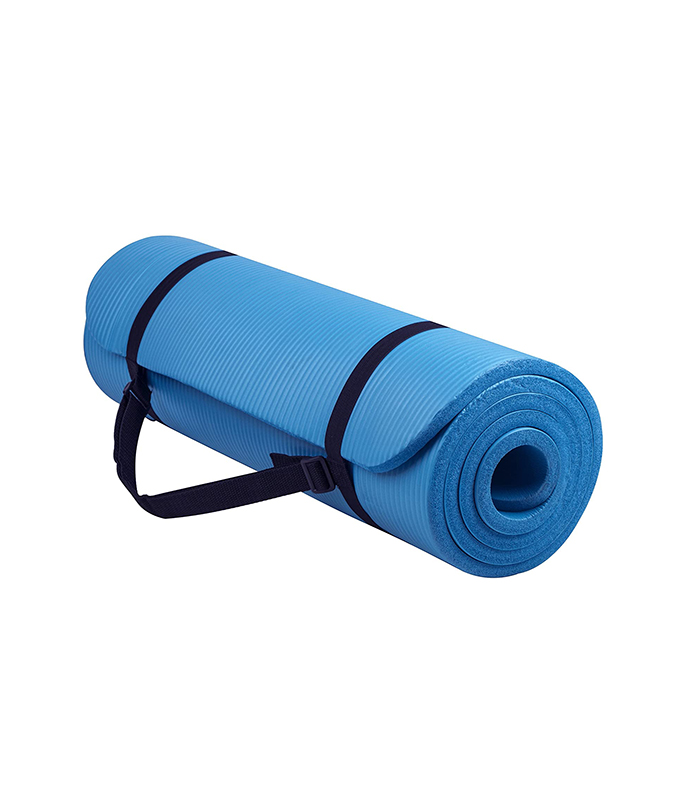
A mat isn't exactly a recovery device, but it is a cushioned, comfortable one that can make your floor workouts and stretching sessions a little bit easier.
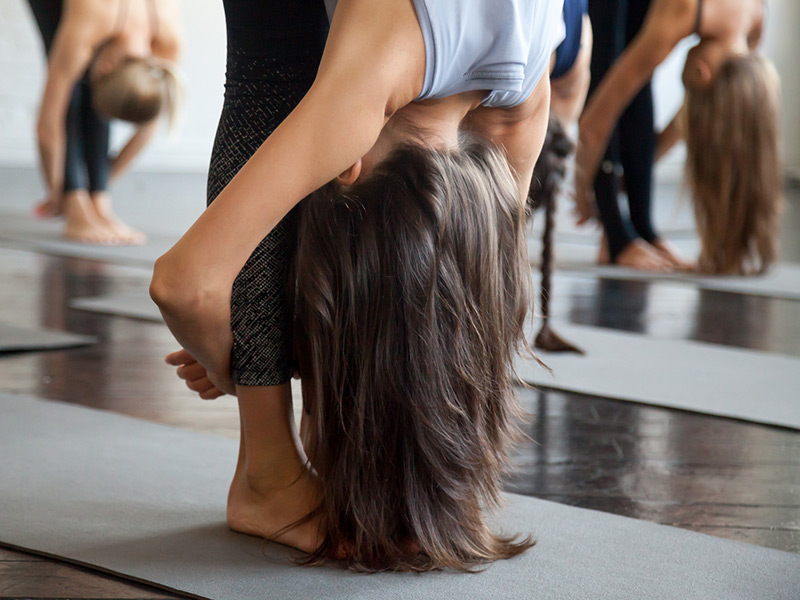
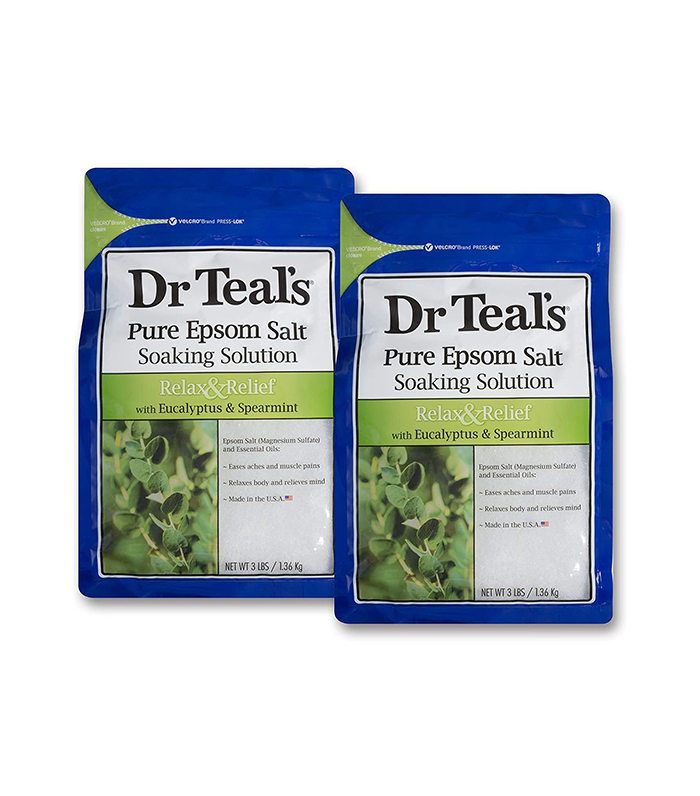
An epsom salt bath can be so comforting for sore muscles and aches. Dr. Teal's solution contains eucalyptus and spearmint essential oils for a truly relaxing and refreshing experience.
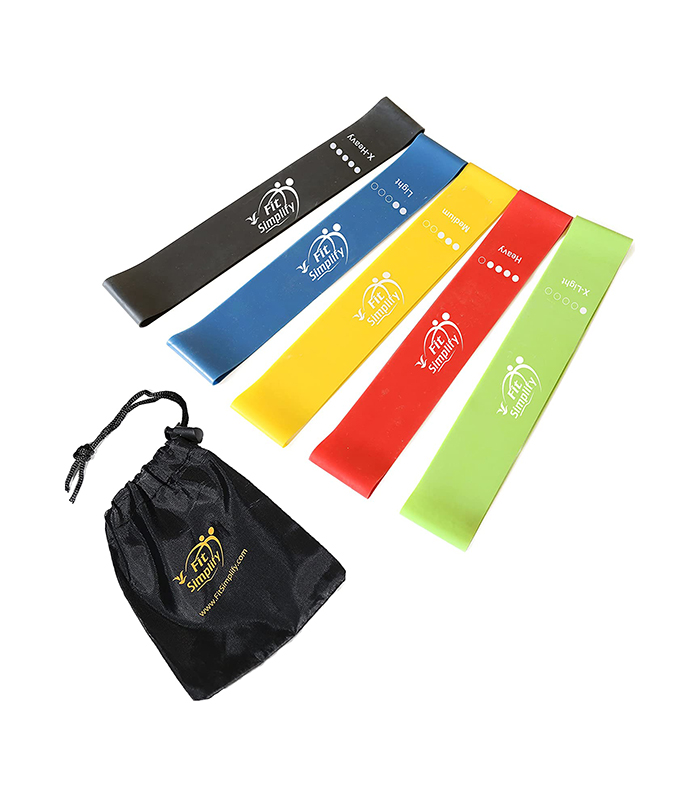
Resistance bands aren't just for strength training workouts—they can also be used to stretch out tight muscles.
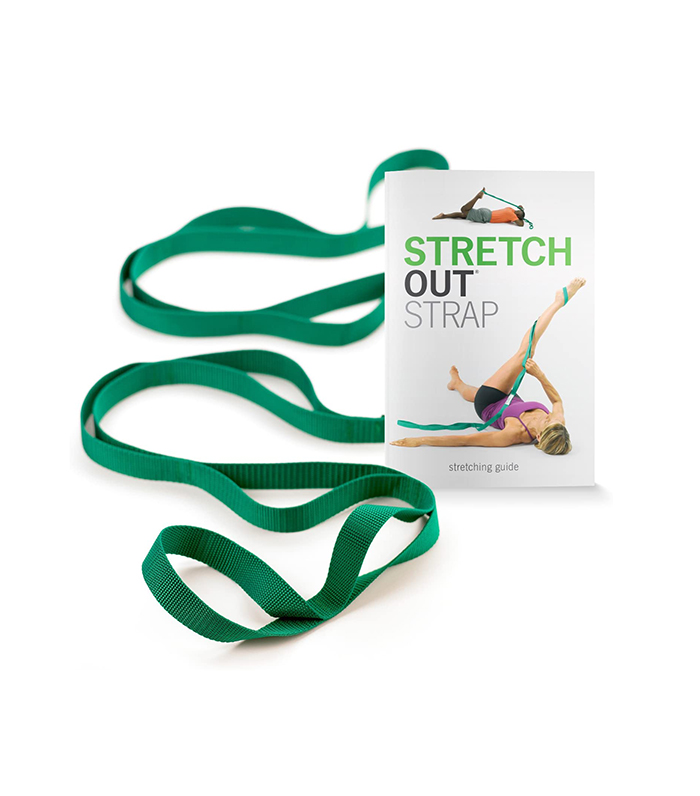
This strap comes with an instructional book to give you some ideas for different stretches and exercises.
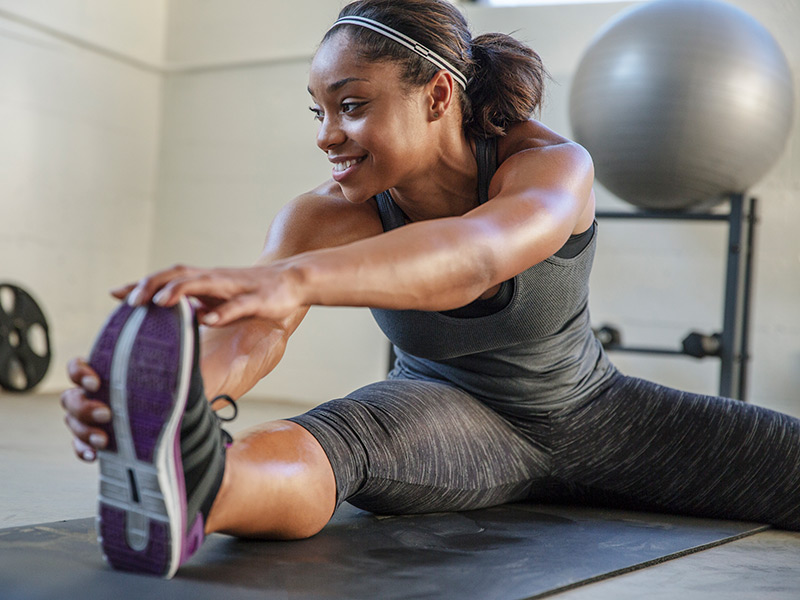
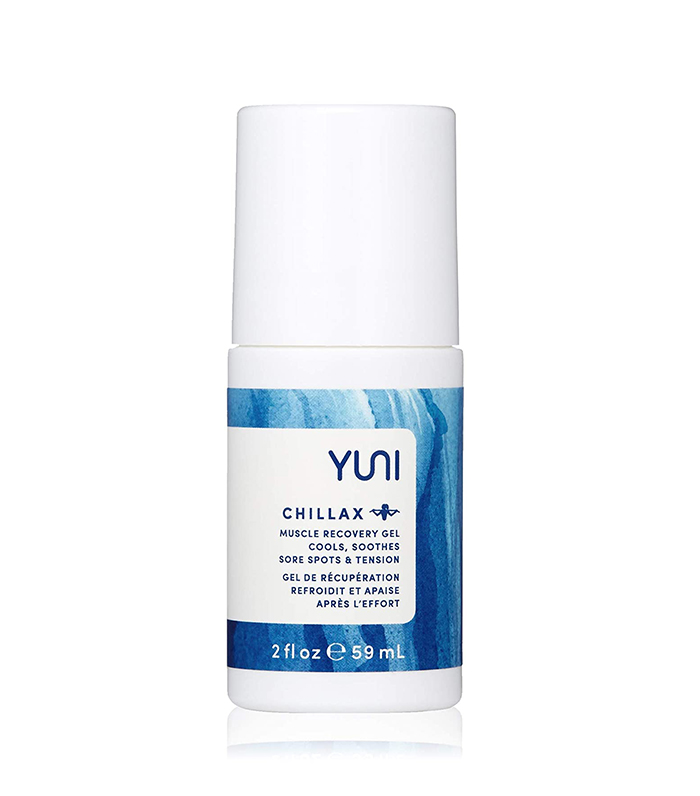
Apply this gel to any sore or tired muscles after your workouts.It contains soothing and cooling ingredients like arnica and peppermint.
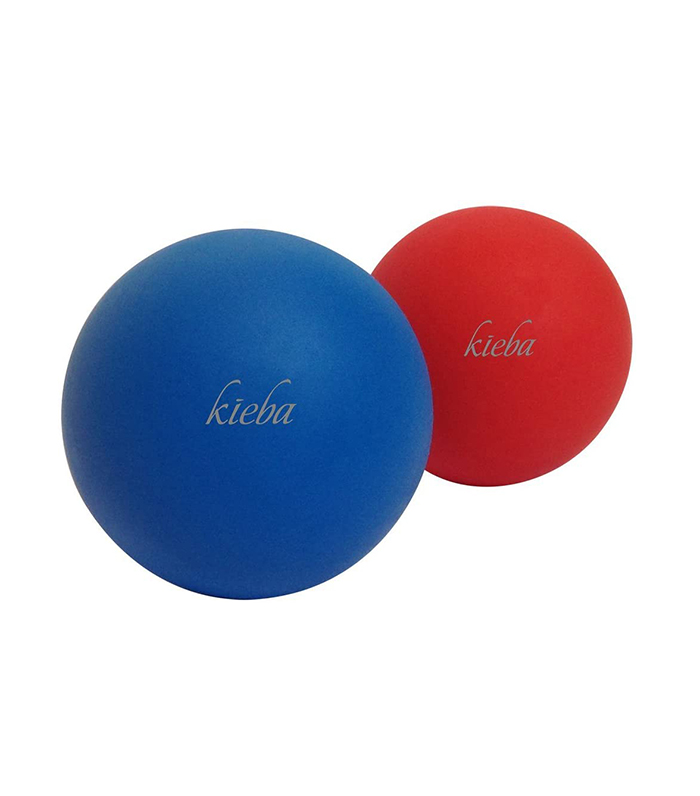
These massage balls work like a foam roller since you use your body weight to relieve tension. They're especially good to use on your feet.
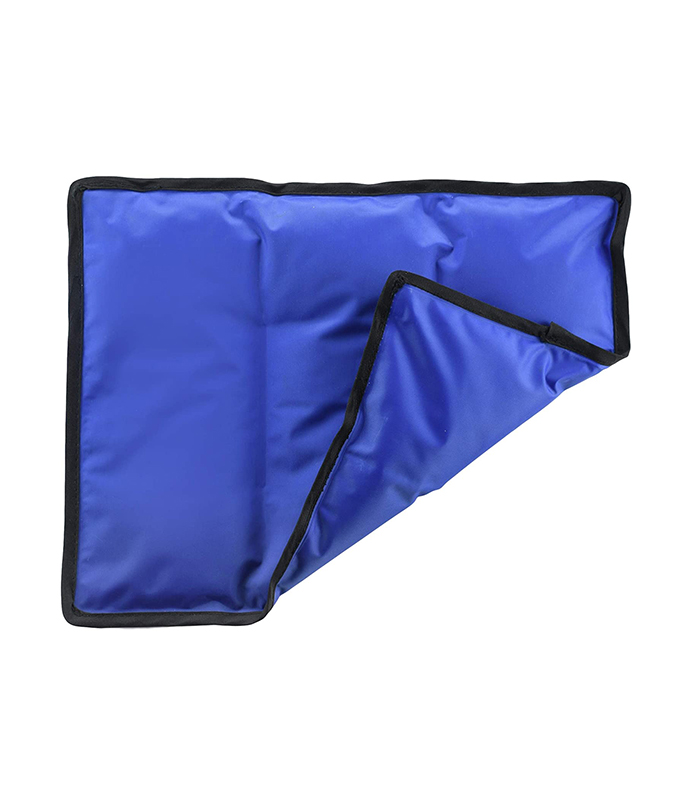
Whether you need an ice pack or a heating pad, you've got both with this find. It's easily moldable so you can use it all on pretty much any body part.
Next: The Dos and Don'ts of Working Out at Home, According to Celebrity Trainers
Disclaimer
This article is provided for informational purposes only and is not intended to be used in the place of advice of your physician or other medical professionals. You should always consult with your doctor or healthcare provider first with any health-related questions.
Sarah is lifestyle writer and editor with over 10 years of experience covering health and wellness, interior design, food, beauty, and tech. Born and raised in Los Angeles, she attended New York University and lived in New York for 12 years before returning to L.A. in 2019. In addition to her work at Who What Wear, she held editor roles at Apartment Therapy, Real Simple, House Beautiful, Elle Decor, and The Bump (sister site of The Knot). She has a passion for health and wellness, but she especially loves writing about mental health. Her self-care routine consists of five things: a good workout, “me” time on the regular, an intriguing book/podcast/playlist to unwind after a long day, naps, and decorating her home.
